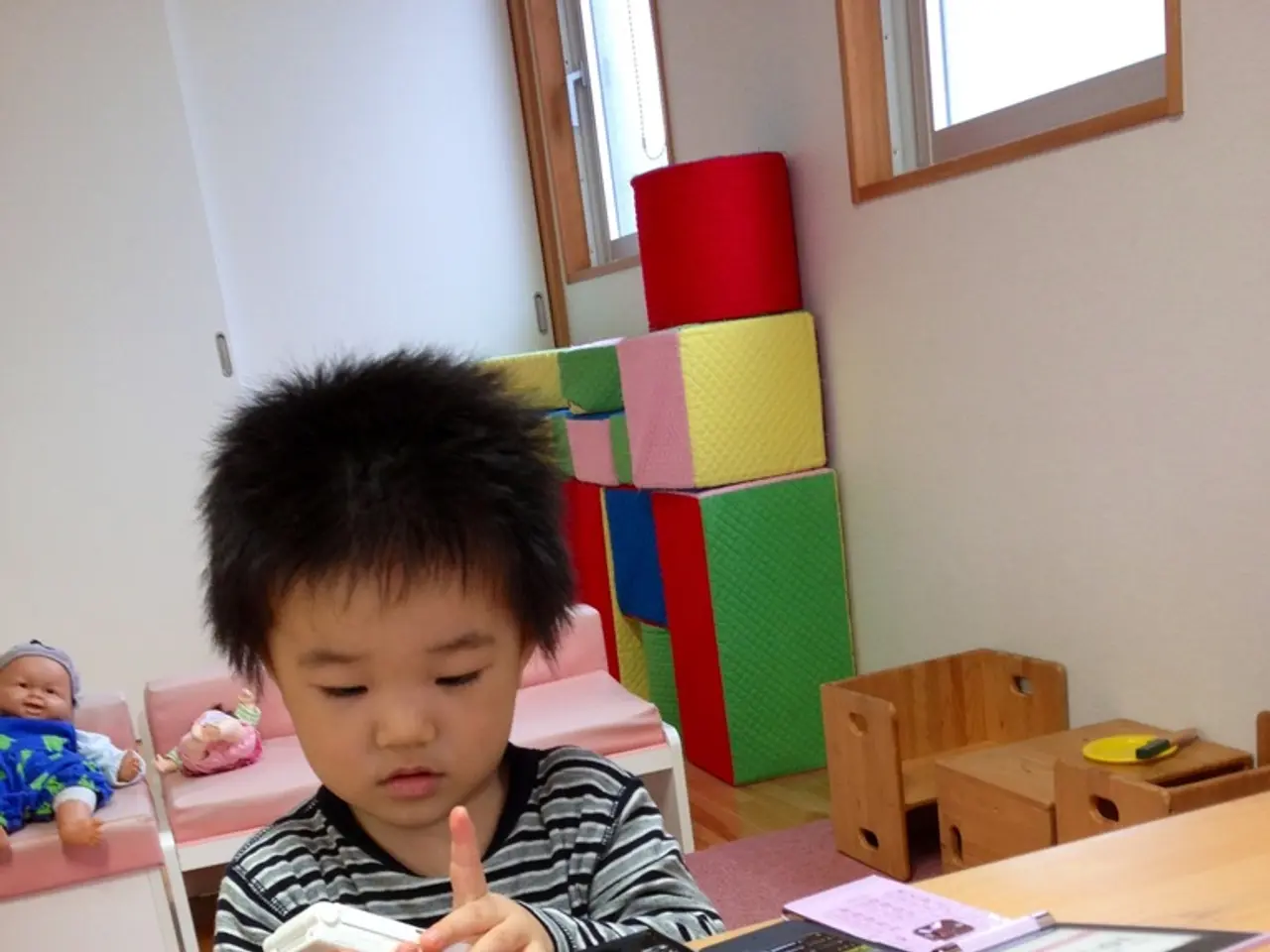Impacts of Excessive Screen Time on Children's Brains?
===============================================================================
In the digital age, the role of screen time in a child's life is a topic of ongoing debate. Contrary to the general perception, it's not the total amount of screen time that determines its impact, but rather the purpose and method of use.
Research suggests that screen time that is not educational or social can potentially have negative effects on children, particularly when it comes to their sleep and mental health. Excessive usage can lead to sleep disruptions and mental health issues [1]. However, it's important to note that not all screen time is harmful.
On the positive side, educational and social screen time can be beneficial for children. These activities provide access to interactive learning experiences, educational games, and opportunities for communication with distant family and friends. Such screen use can enhance cognitive skills such as problem-solving, hand-eye coordination, and language development [2]. For instance, video chatting supports conversational skills, and interactive games promote listening and turn-taking [2].
The key lies in the purpose and method of screen use. Passive screen time, such as simply watching videos, offers little educational advantage and can displace essential face-to-face interaction, potentially slowing language and social development [2]. On the other hand, screen time that encourages real-life communication, participation, and cognitive engagement can have positive developmental outcomes [2].
Moreover, unstructured breaks from screen time and a balance with physical activity and social interaction support mental health and cognitive reset [4]. Establishing routines that blend screen and off-screen activities helps maximize benefits and minimize risks [4].
In summary, benefits arise mainly from purposeful, interactive, or social screen use that complements hands-on and in-person experiences, while excessive or passive usage can hinder development and well-being [1][2][4].
For updates on this topic and more, follow our Google News channel. The importance of a balanced approach to screen time for children cannot be overstated.
References:
[1] American Academy of Pediatrics. (2016). Media and Children’s Health. [online] Available at: https://www.aap.org/en-us/about-the-aap/aap-press-room/pages/media-and-childrens-health.aspx
[2] Rideout, V. J., & Vandewater, E. A. (2014). The Impact of Media Multitasking on Preschoolers’ Executive Functions. Pediatrics, 134(4), e800-e807.
[4] Rideout, V. J., & Hamer, A. (2016). The Impact of Screen Time on Children, Adolescents, and Young Adults. Pediatrics, 138(Suppl 2), S103-S108.
Science shows that educational and social screen time can positively influence a child's health-and-wellness, particularly mental health. Interactive online learning environments, video chats, and educational games can boost cognitive skills such as problem-solving and language development. However, excessive or passive screen time without purpose or real-life engagement can lead to negative effects on a child's mental health and overall well-being.




